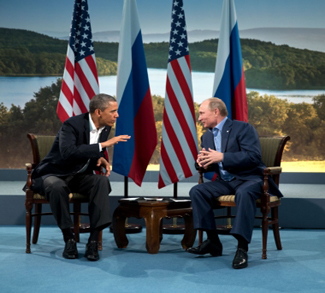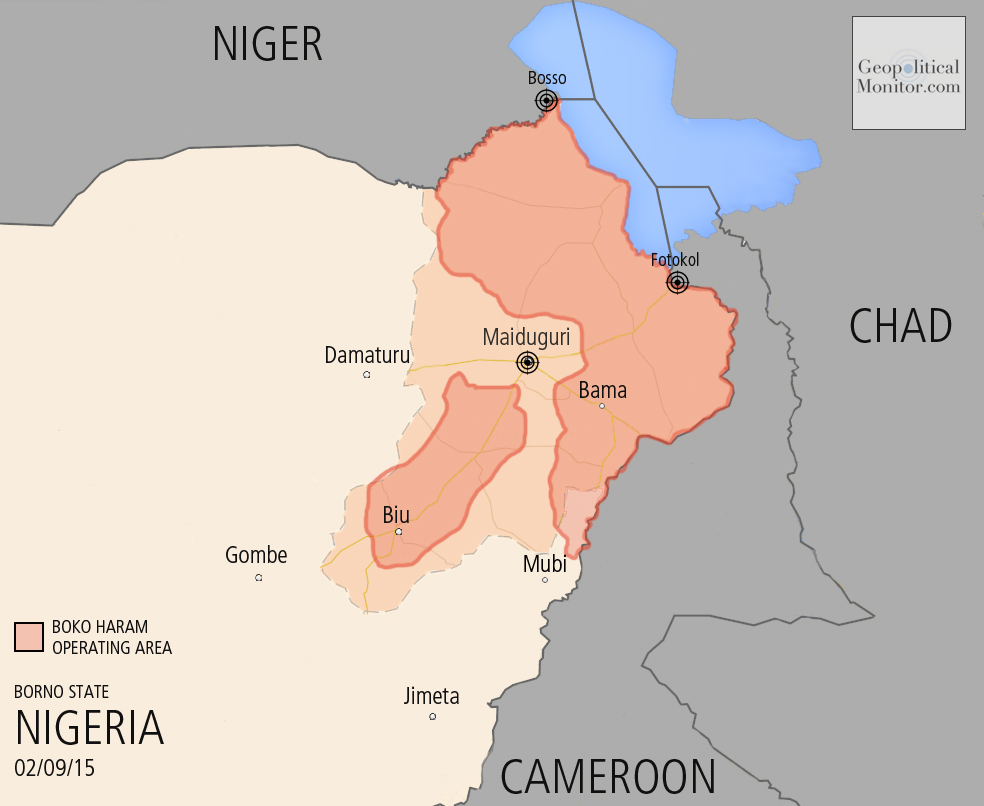Summary
For the women of eastern Congo, a U.S.-backed Congolese military operation meant to save them from abusive rebels has turned into a nightmare of its own.
Analysis
An already staggering epidemic of rape has become markedly worse since the January deployment of tens of thousands of poorly trained, poorly paid Congolese soldiers, with people in front-line villages such as this one saying the soldiers are not so much hunting rebels as hunting women.
And so as the sun dropped behind the soaring jungle here one recent day, little girls, mothers and grandmothers began heading home, some closing curtains and padlocking wooden doors. It was time, they explained, to lock themselves indoors.
“To avoid getting raped, after 6 p.m., women are not allowed to go out of the house,” said Maria Bitondo, who said she was among three women attacked by a soldier last month. “With the soldiers here, no woman is safe to go out and walk. We do not even go to the bathroom at night.”
On Monday, a coalition of 88 aid groups called the operation, which is supported by the United Nations, “a human tragedy” and urged Secretary of State Hillary Rodham Clinton, who is to visit eastern Congo on Tuesday, to push for better civilian protection. Clinton has vowed to make the prevention of sexual violence a priority in Congo, where the United States pays about a quarter of the cost of U.N. peacekeeping efforts.
“We have to speak out against the impunity of those in positions of authority who either commit these crimes or condone them,” Clinton said at a town hall meeting in the capital of Kinshasa on Monday. She added, “There are even some cases of these terrible crimes committed by members of the Congolese military.”
But U.S officials have also applauded the operation, calling it an important diplomatic step in mending a destructive relationship between Congo and Rwanda. The operation, which is being supported with helicopters, trucks and other logistics by U.N. peacekeepers here, is targeting Rwandan rebels including some who fled here after participating in the 1994 Rwandan genocide.
Although all sides in Congo’s messy 15-year conflict have used rape as a weapon of war — particularly the Rwandan rebels — the spike since January is being widely blamed mostly on the army. The number of soldiers roaming these eastern hills has almost tripled to 60,000, and rapes have doubled or tripled in the areas they are deployed. Aid groups said the number of rapes so far this year is probably in the thousands.
Though Congolese President Joseph Kabila recently declared a policy of “zero tolerance” for sexual violence, fewer than a dozen soldiers have been convicted of rape this year. In May, the U.N. Security Council handed Kabila a list of five senior army officials, including a general, accused of rape, but so far none have been prosecuted.
“After reaching an area, the soldiers are taking everything there as the spoils of war, including the women,” said Honore Bisimwa, who works with a nonprofit group, Olame Center, trying to educate soldiers about rape laws. “They take them like property.”
In this jungle-matted territory, about 5,000 soldiers are on the move, including a portion of 12,000 ex-rebels and militiamen folded into the army after a recent peace deal. In February, they set up a base in the territorial capital of Shabunda, where U.N. peacekeepers also have a base, then marched by foot into smaller front-line villages along narrow dirt roads traversed daily by women heading to farms and stooped over hauling jugs of water and stacks of wood. Soon after, villagers began complaining of looting, and women began making their way to health clinics.
In less than three months, more than 100 rapes were reported in the area, said Adele Sikanabo, a local activist, adding that “there are so many we don’t know about.”
“I’d say 99 percent are by soldiers,” she said. “And every week, it continues I hear them say, ‘You think we’ll stay here without women?! We need women!'”
The attacks in Lugungu began last month.
As women here do most mornings, Madelena Ngalya left the village around 9 a.m. one recent day and walked alone along a path through the jungle to her farm. The 56-year-old widow had been planting there for about an hour when she saw a soldier at the edge of the field. He walked toward her.
“I started trembling when I saw him,” she said. “I felt unable to cry, even to scream. I said, ‘My son, how are you?'”
The soldier asked whether she was by herself.
“I said, ‘I’m alone here,’ she said. “He said, ‘If you cry, we have many soldiers in the jungle, and when others hear you cry, they will come to you, too.’ My body was like dead. Then he did what he wanted to do.”
On the same day Ngalya was raped, in the same area, around the same hour, soldiers raped four more women — the youngest 18 and pregnant, and one older than 70. Three other women, including Bitondo, narrowly escaped the assault of another soldier while they were out cutting firewood.
“He started saying, ‘We are suffering. We left our wives very far, we are going to die, and you are here like this,'” Bitondo said. “We started running.”
The soldier chased after her friend, 20-year-old Rosa Musombwa, who took off so fast she left her flip-flops behind. When the soldier caught her skirt, she twisted out of it and kept on running through the jungle. When he caught her again by her underwear, she ripped them off and kept running, finally jumping into a sandy river. The soldier jumped in after her, but finally gave up.
Not one soldier from the 52nd brigade, which is in charge of the area, has been arrested, military officials said.
After the spate of attacks, women imposed the curfew, and they now go to their farms only in groups of five or six and accompanied by men.
“If [soldiers] meet you, they will rape you,” Ngalya said. “They don’t fear anything.”
She and other women wonder whether their own fiercely patriarchal society is encouraging soldiers to rape. Girls here are often forced to marry as young as 13. In some traditions, a kind of ritualized rape is part of a boy’s coming of age. Prostitution is common. And in general, Bitondo said with a sense of exhausted humor, women are expected not so much to enjoy their husbands as service them.
“According to our custom, even though he’s your husband, when he needs sex, he doesn’t have to ask your permission,” she said. “In this territory, men take women like an instrument that doesn’t have any value.”
The current operation is underway at a moment of limited fighting. At the moment, soldiers around here are mostly waiting, traipsing up and down roads on “missions.” Occasionally, they attend workshops on rape such as one Bisimwa gave recently in a hot schoolroom in Shabunda.
“Why do people rape?” he began, and passed out little blue booklets explaining Congo’s rape laws. An officer grumbled.
“Today in Shabunda, there are young girls 13 years old getting married,” said Narcisse Muteba, 40, a colonel. “But when the soldiers come, then they cry, they cry!”
Later, Bisimwa, who is often heckled during workshops, traveled to the village where the 52nd brigade is based.
Around noon, dozens of soldiers were sitting in front of houses, fixing old broken rifles, napping on patches of grass. Bisimwa went to the hospital to visit a sick soldier, whom he asked about accusations against the brigade.
“We’ll pass some women, and someone will say, ‘Oh, I have to take her,'” the soldier said. “It’s not just one soldier. It’s many. I can’t stay when they do that.”
He and other soldiers interviewed expressed a deep frustration at their pay, which is usually late and only $50 a month; their rations, which were recently a single can of sardines for three soldiers for 15 days; and especially their long deployments, which often keep them away from their families for years.
“The truth is like this,” said one officer, sitting under a shed and sipping a powerful local brew. “What is making soldiers to do these bad things is their treatment by the army. Imagine, one can of sardines?! And you send a soldier away for 10 years?! So, I’m hungry, I’m in need of a wife and I have no money” to pay for a prostitute, he said. “If I see a woman walking on the road, and I love her, I will take her. I will help myself.”
The lieutenant, who did not give his name, is in charge of teaching his soldiers about human rights. “Now,” he said, “buy me a beer so I don’t have to rob you.”
Sitting outside a house on a hill, the deputy commander of the 52nd brigade, Lt. Col. Padiri Dieu Donne, denied that any of his soldiers had raped women in Lugungu.
“We can’t say all of us are saints,” Donne said. “But the problem of rape doesn’t exist in the place where we are.”



